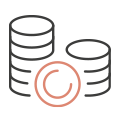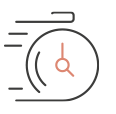The Trump Foundation’s clinical teaching strategy relies on teachers jointly developing their practice in the framework of a ‘professional learning community’ (PLC). Currently we support six programs at the Weizmann Institute, Haifa University, Branco Weiss Institute and Kadima-Mada, which operate dozens of PLCs for hundreds of teachers of physics, mathematics, chemistry and STEM subject heads across the country. The participating teachers routinely engage in trying to improve their instruction, documenting and analyzing their teaching and the way in which their students learn, and learning clinical teaching techniques.
These six programs have convened at the foundation’s office for five workshops over the past year, in order to share knowledge, exchange best practices and learn from each other’s challenges. At this stage, they believe it would be instrumental to meet with colleagues abroad who lead similar efforts and learn from their experience. The emergence of PLCs for and by teachers started in the US fifteen years ago and is widespread ever since, attracting attention, resources and research around them. Noteworthy is the research work of Jean Lave, Etienne Wegner, Judith Little, Anthony Bryk, Michael Fullen and Richard Dufour.
Therefore, in order to gain a closer and more intimate perspective with cutting edge research and practice, the Weizmann Institute is proposing on behalf of the cluster of programs, to embark together on a 5-day study tour to the United States. They plan to use the opportunity created at the American Education Research Association (AERA) conference, which will be held in Washington DC in April 2016. The conference is attended by most of the leading education researchers and practitioners in the US, and therefore provides a convenient setting for arranging face-to face meetings. In addition, they will spend two days in New York, visiting different models of PLCs, such as those of ‘Math for America’, school-based communities of the local district, and online PLCs for science teachers
The visit will address the following questions:
- What are the most effective components in a PLC that bring teachers to examine their teaching practice in correlation with the learning of their students? What are the tools and methods that can promote these activities?
- How are PLCs able to sustain their operation over time while maintaining interest and motivation among the teachers?
- What are the key characteristics of a good PLC facilitator and how can a good teacher become a good PLC facilitator?
- What are the advantages and difficulties of operating local or regional PLCs compared to a school-based PLC?
Upon their return, the cluster leaders will jointly write a detailed report summarizing their meetings around these questions, including their insights and suggestions for improvements in their programs. The report will be shared with the professional community and will be available online free of charge.
* The text above shows the grant as approved by the Foundation’s Board of Directors / Grant 182




